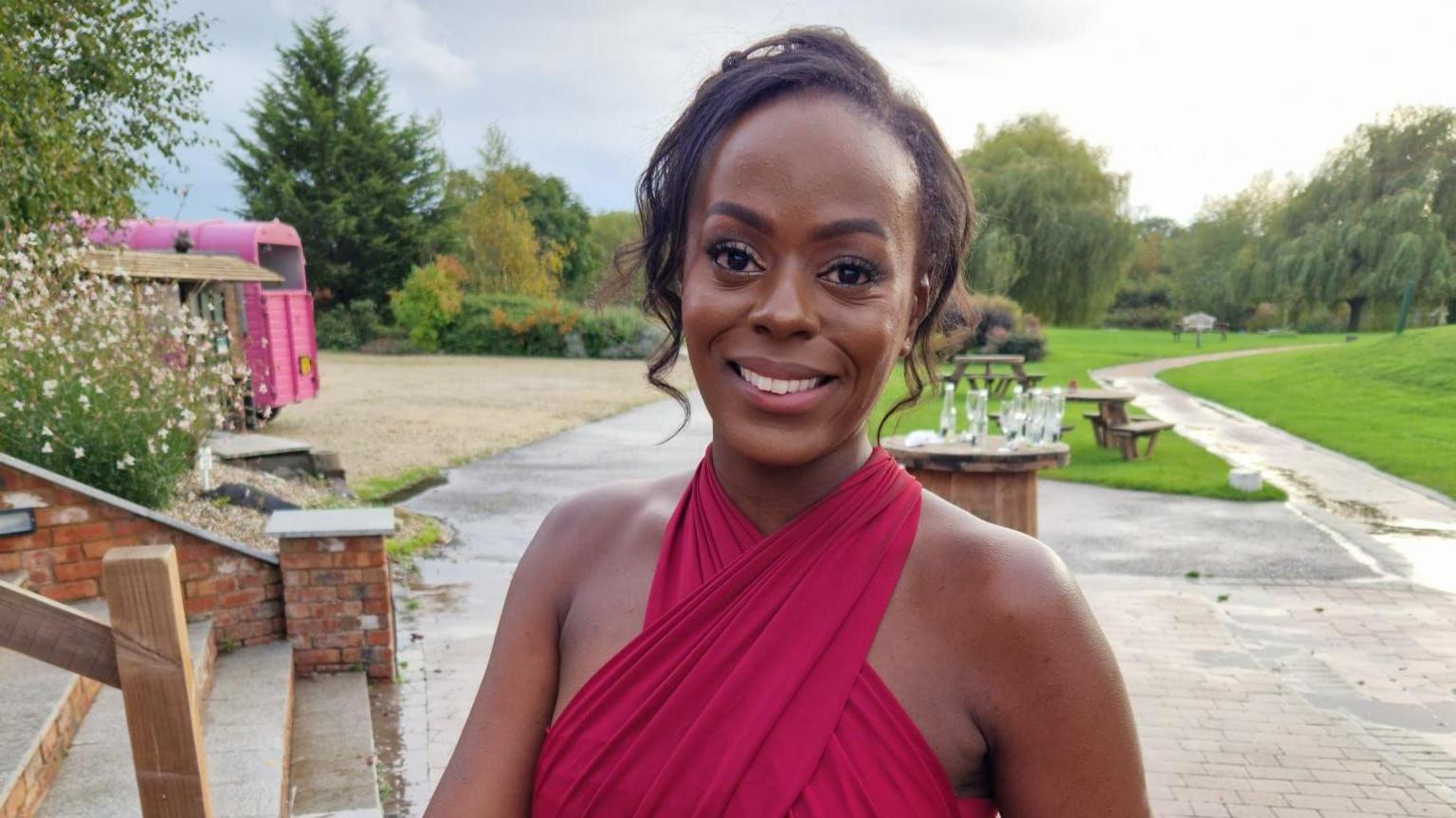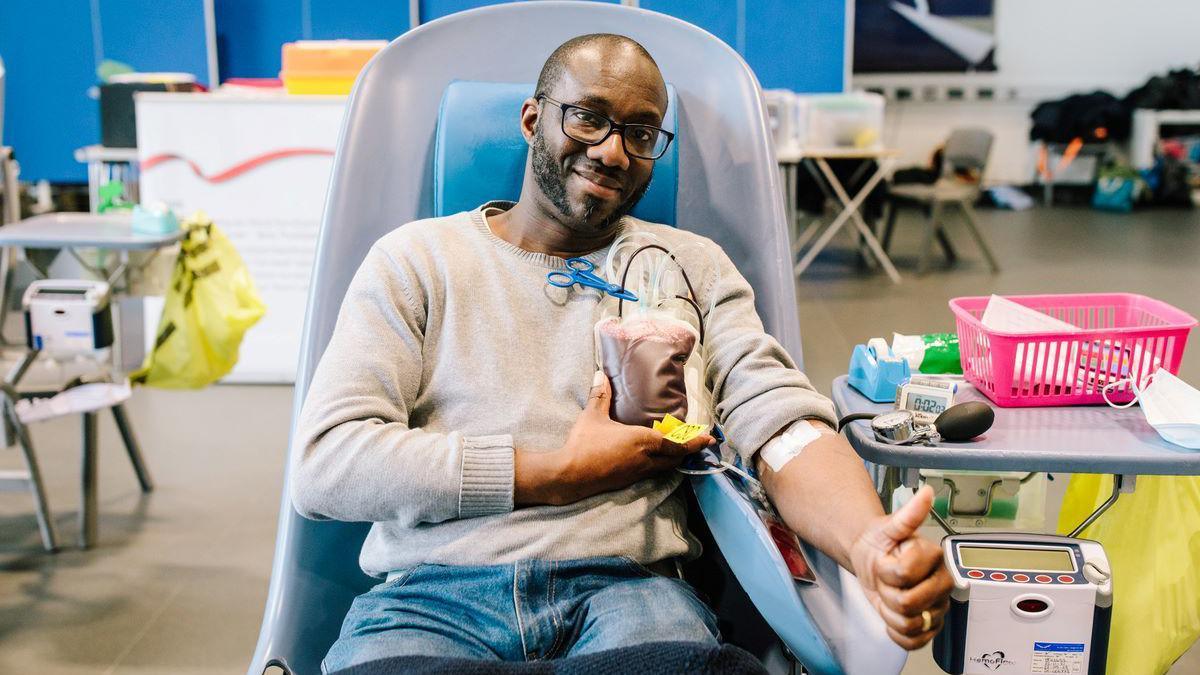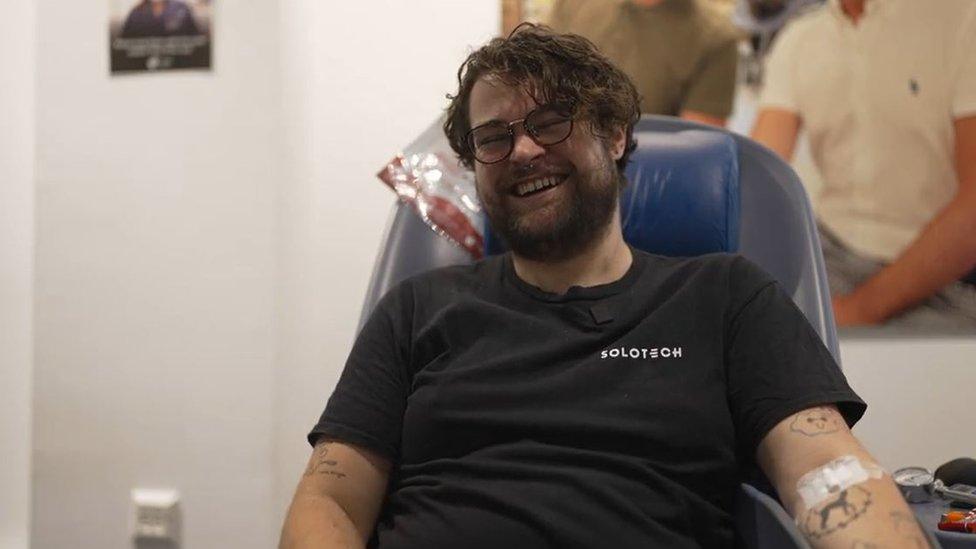Woman who survived cancer leads blood donor calls

Nadine Rose-Smith gave blood for about 15 years, but now cannot after a lymphoma diagnosis
- Published
A woman who has been donating blood since she was 17 has encouraged others to come forward, after a cancer diagnosis meant she could no longer give blood.
Healthcare bosses said one in every 10 blood donations used by the NHS in England last year went to hospitals in the West Midlands.
Nadine Rose-Smith, 33, has been working to encourage people to give blood, particularly those of black heritage.
Donors are now being urged to come forward – and while all blood types are needed, O negative and O positive donors are required in particular.
Ms Rose-Smith has been giving blood for about 15 years, but in January she was diagnosed with Hodgkin lymphoma.
She is undergoing chemotherapy treatment and is now in remission.
“Having been a blood donor and now as a blood cancer survivor, I know how crucial donated blood is,” she said.
“It can be a lifeline for people with cancer and other conditions like sickle cell.”
She added: “It was hard to hear that I could never donate again after my diagnosis. But I can help by inspiring others to donate.”
What types are needed?
Bosses said the NHS had lower stocks than usual due to the recent bank holidays and school holidays.
They said they needed an average of one donation of blood every four minutes to keep up with demand.
O negative blood is especially important, they said, because it could be given to anyone.
It is carried in air ambulances and emergency response vehicles.
Meanwhile, O positive is the most popular blood type, they said, as more than a third of donors have it – and can be given to anybody with any positive blood type.
More donors of black heritage are also needed to provide ethnically-matched blood for people with sickle cell.
Hospitals said they needed 250 donations per day for sickle cell, as it is the fastest growing genetic blood disorder in the UK.
Paul O’Brien, director of blood supply for NHS blood and transplant, said demand for blood never ceases.
“To make sure blood is always there for patients who desperately need it, we need more people to join our amazing community of blood donors,” he said.
You can book an appointment via the GiveBloodNHS app or at www.blood.co.uk.
Follow BBC Birmingham on Facebook, external, X, external and Instagram. Send your story ideas to: newsonline.westmidlands@bbc.co.uk, external
Related topics
More stories on blood donation
- Published2 June 2024

- Published30 December 2023
